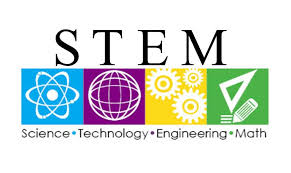EdTech Should Change the Way Teachers Teach

For a long time, teaching was teacher-centered: the teacher dispensed information through lecture, handouts, or presentations; the students absorbed the information by listening and taking notes. It was repetitive, could become monotonous, and left little room for student exploration or creativity. It was also detrimental to students who couldn’t keep pace with the teacher’s lessons or students who learned in way different from the teacher’s presentation
The past ten years have seen a surge in student-centered learning, and the integration of technology into the classroom makes it increasingly easy to create engaging lessons that reach a variety of learners in a variety of ways.
There are many ways that technology has changed and improved teaching methods, making education more meaningful and accessible to all students.
- Education Doesn’t Have to Happen Only Within the Walls of a Classroom
Now that technology is becoming more ubiquitous, teachers can continue to communicate and teach even when class isn’t in session. Teachers can reach students through email, Twitter, or classroom forums like BlackBoard and Google Classroom. On weekends and snow days, teachers can send messages or blasts to engage students in off-the-cuff or carefully curated activities, reading experiences, community opportunities, or study groups even when class is over and school is closed.Students can take what they’re discussing in the classroom and use it to explore the world around them, all while still staying connected to their teachers.
This means that teachers have to be increasingly more communicative, more plugged into the community in which they teach or live, and be willing to showcase connections between the classroom and the world around the students. It requires more organization and proactivity on the part of the teacher than traditional lecture-style lessons, but it is infinitely more meaningful to students.
- Textbooks May Be Obsolete
Thanks to technology, many schools are no longer ordering or relying on traditional textbooks. Instead, it is up to teachers to sift through the content on the internet, or on education websites, to find real world materials that showcase the content being taught in the classroom. Resources like McGraw-Hill’s Study Sync Program provide teachers with a curated materials that teachers can use in whatever order they like at whatever pace suits their students.
Teachers can no longer rely on reading a chapter and then answering the textbook questions. Instead, technology is encouraging educators to become more proactive in find reading materials that are authentic and relevant, and engage students on a deeper level.
- Technology Makes it Easy to Flip Classrooms
Instead of teaching the content and then assigning homework, technology enables teachers to provide instructional materials (presentations, recorded lectures, PowerPoints or presentations, YouTube videos, etc) for the students to peruse on their own time and at their own pace. This means that teachers then become guides and resources for the practice work – classwork now that used to be homework – showing the students how to best use the information they took in. The function of the teacher is no longer to impart information, but to guide students in making the best use of the information they read and learn.
- Collaboration is Increasing
Teachers no longer need to teach in a vacuum! Thanks to technology, teachers can collaborate across content areas, grade levels, even across vast geographical distances. Teachers can communicate with one another to make cross-curricular experiences that will solidify student learning and find experiences that will help their students in real-world situations. It also means that they can give their students opportunities to learn from others in both similar and different life situations, cultures, and locations. Teachers become facilitators for students’ experiences.
- Learning Can Be More Personalized
Technology makes it easy for teachers to tweak lessons and materials to each individual student’s’ needs and interests. No Red Ink, for example, is a resource that teachers can use to disseminate grammar lessons, and it surveys each student to cater the lessons and activities to his or her particular interests. Teachers can discreetly and abundantly address special education students’ IEPs as well using technology, all without making a student feel singled out or different. With technology, a teacher is responsible for differentiating his or her lessons so that every student receives the greatest depth and breadth of understanding.
- Teachers Can Give More Constant, Personal, and Meaningful Feedback
In bygone days, teachers would survey the class with “a show of hands” or “fist to five” strategies to gauge student understanding. Sometimes, they used exit slips. Now, however, with technology, teachers can gauge individual student learning through communication and the near-constant feedback of iPads and computers. For example, teachers can watch in real time as student’s type an essay. Instead of waiting until the end, when the writing is turned in, to read and give feedback, teachers can prevent mistakes as they are being made, give on-the-spot feedback, and work collaboratively with students to show them how to correctly complete the process, instead of just evaluating the final result.
- Classroom Management Strategies are Shifting
With technology, students always have the opportunity to be engaged, even when a teacher needs to deal with one individual student. In the past, if a teacher needed to stop class to address a student behavior, everyone else had to wait until the teacher had returned to the task at hand to move forward. Now, forward progress continues, regardless of to whom the teacher is speaking or why. But more than that, technology can impact how classrooms are managed. From planning to engaging to monitoring, teachers can use apps and technology to make sure that students are on task and engaged, thus reducing misbehaviors.
Technology is here to stay. And even though it presents its own unique array of challenges, it pushes teachers to stay creative, to meet students on their home field, and to innovate. From the information taught to the method of delivery to managing the students’ behavior and achievement, technology helps teachers make the most of classtime.






